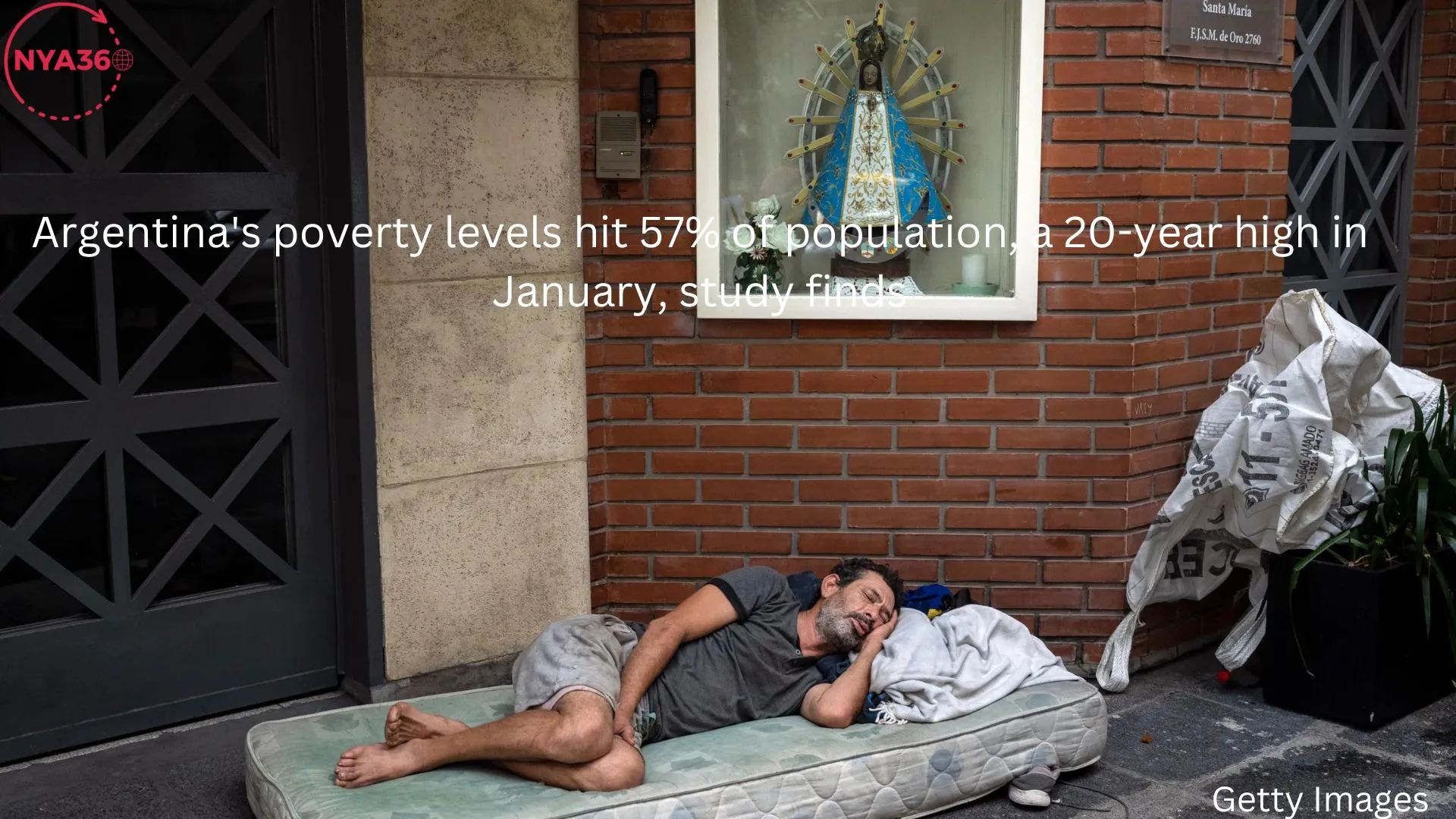Argentina is facing a significant increase in poverty levels, with current figures showing that 57.4% of its 46 million residents are impacted. The Catholic University of Argentina released data indicating the highest poverty rate in the country in the last twenty years. Former Vice President Cristina Fernández de Kirchner and current President Javier Milei are engaged in a heated exchange of allegations due to recent findings. This development highlights the severe socioeconomic issues in Argentina and raises worries about the effectiveness of government actions in dealing with the country’s long-standing crisis.
The report’s findings highlight the ongoing challenges faced by a substantial segment of Argentina’s population. These figures reveal tales of difficulty, need, and financial instability, portraying a bleak image of livelihoods facing pressure. For many Argentinians, the everyday challenge of meeting basic needs has become a harsh reality, intensifying pre-existing disparities and increasing the divide between the wealthy and the disadvantaged.
The study’s release led to a blame game, highlighting the politically volatile environment in Argentina. Cristina Fernández de Kirchner quickly blamed President Javier Milei’s government for not implementing successful initiatives to reduce poverty. The Milei administration justified its actions by highlighting the implementation of bold initiatives to revive the economy and provide opportunity for all citizens.

President Milei’s administration took office pledging to address Argentina’s economic challenges directly and bring about significant change. The actual situation indicates that the path to recovery is filled with difficulties, as seen by the significant increase in poverty rates. Critics contend that the government’s strategy, marked by sudden actions and quick changes, has not resulted in concrete benefits for the most at-risk groups in society.
The debate revolves around the effectiveness of economic strategies in dealing with Argentina’s complex problem. Some support austerity and fiscal discipline for stability, while others prefer a caring and inclusive strategy focusing on social welfare and redistribution. The heated debate shows different perspectives on Argentina’s future, which could have significant effects on the country’s socioeconomic structure.
Outside of politics, the increase in poverty levels highlights the pressing necessity for holistic solutions that tackle the fundamental reasons for inequality. Implementing structural reforms to improve access to education, healthcare, and employment is crucial for ending the cycle of poverty and promoting sustained economic growth. Moreover, specific social programs and aid measures can offer essential support to individuals facing significant economic challenges.
Civil society and non-governmental organizations (NGOs) play a crucial role in reducing the effects of poverty and supporting the rights of vulnerable populations. Local efforts focused on empowering individuals and communities to overcome challenges are essential for promoting resilience and enhancing social unity.

Argentina is facing a severe poverty issue and requires unity, cooperation, and coordinated efforts to address it. Political divides must give way to collaborative initiatives focused on addressing the fundamental causes of poverty and fostering equitable development. Argentina can only achieve a future where all citizens can flourish and prosper through collective dedication and solidarity.
Follow us on social media: Instagram, Threads & Twitter X @nya360_ YouTube & Facebook @nya360.





